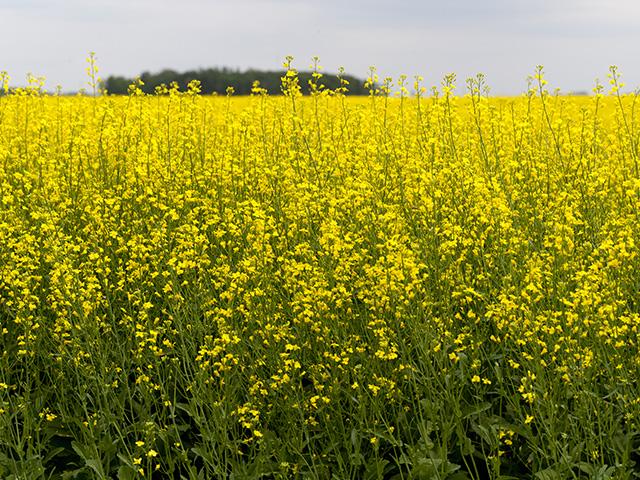Three Companies Announce Canola Project
Corteva Agriscience, Bunge and Chevron Seek Southern Acres for Growing Winter Canola
JEFFERSON CITY, Mo. (DTN) -- Golden fields of winter canola may become a more familiar sight across the southern United States in the future thanks to a commercial collaboration announced March 14.
Corteva Agriscience, Bunge and Chevron U.S.A. intend to work with growers in states such as Tennessee and Kentucky to increase cultivation of the oilseed crop to supply plant-based oil as feedstock for renewable diesel and sustainable aviation fuel production.
"We believe that this is a new opportunity to bring more options to growers," said Corteva Agriscience's Juan Carlos Rojas, senior director, new business leader, during a phone interview with DTN. "We're bringing the genetics and agronomic package, Bunge is handling the processing and Chevron supplies the oil market."
A member of the Brassica plant family that includes mustard, broccoli, cauliflower and Brussels sprouts, canola is grown predominantly as a spring crop in the United States. According to the U.S. Canola Association, nearly 2.2 million acres were planted to the crop across 29 states in 2021. North Dakota accounted for roughly 79% of that acreage.
P[L1] D[0x0] M[300x250] OOP[F] ADUNIT[] T[]
The winter canola hybrids will offer growers in the region another double-cropping option beyond winter wheat. Rojas said the canola could be planted in the fall following harvest of a crop such as corn. It would overwinter and then be harvested in May or early June. Growers then could elect to follow it with soybeans or cotton.
Pilot program acres are currently overwintering, primarily in Tennessee, as Corteva fine tunes best management practices. Rojas said they anticipate recruiting growers in the coming months to seed at least 10,000 acres in Tennessee and Kentucky for 2023-2024, eventually expanding to Mississippi, Louisiana and other Delta states.
"Every grower is going to have to pencil out what works best for their operation," said Tom Greene, Corteva senior director, external innovation investment. "What's exciting for us is the ability to give them that new value stream opportunity, that option for them to potentially grow a different crop and create a different value stream and have the flexibility year over year to make choices on what works best on their operations."
As a broadleaf crop, canola offers an alternative to cereals in rotation, helping to break up pest and disease cycles and improve weed management. It also is considered an excellent cover crop that benefits soil health. Canola has deep taproots that break up dense soil, improve soil structure and take up nutrients not accessible to the roots of crops such as wheat.
"Rotational cover crops play a key role in our strategy to continue to develop next-generation lower carbon feedstocks," said Greg Heckman, Bunge CEO, in the joint announcement. "As a leader in oilseed processing, we are pleased to work together with Corteva and Chevron to bring this crop innovation to farmers and process it into sustainable solutions for consumers. This is another step in our commitment to creating clear paths to support the decarbonization of the industry."
The companies plan to continue to explore opportunities to sustainably improve farming options and produce lower-carbon renewable fuels. Canola seeds contain about 45% oil, whereas soybeans are 18% to 22%.
"Chevron is committed to advancing a lower-carbon energy future, and we recognize renewable fuels like biodiesel and renewable diesel are a solution to do that," said Kevin Lucke, president of Chevron Renewable Energy Group. "Feedstock innovation is a critical element of the growth of the renewable fuels industry, and innovative solutions like double-crop winter canola not only benefit the lower-carbon future, but also benefit farmers, consumers and the environment."
Jason Jenkins can be reached at jason.jenkins@dtn.com
Follow him on Twitter @JasonJenkinsDTN
(c) Copyright 2023 DTN, LLC. All rights reserved.






